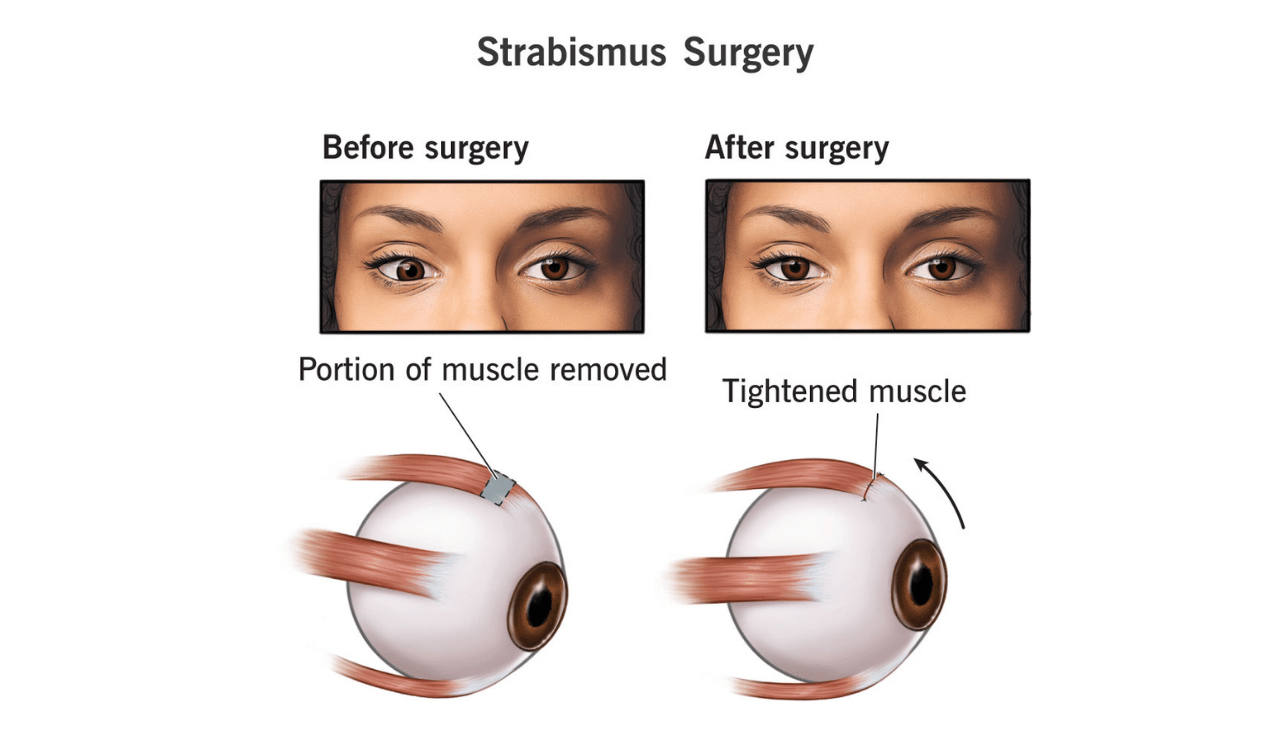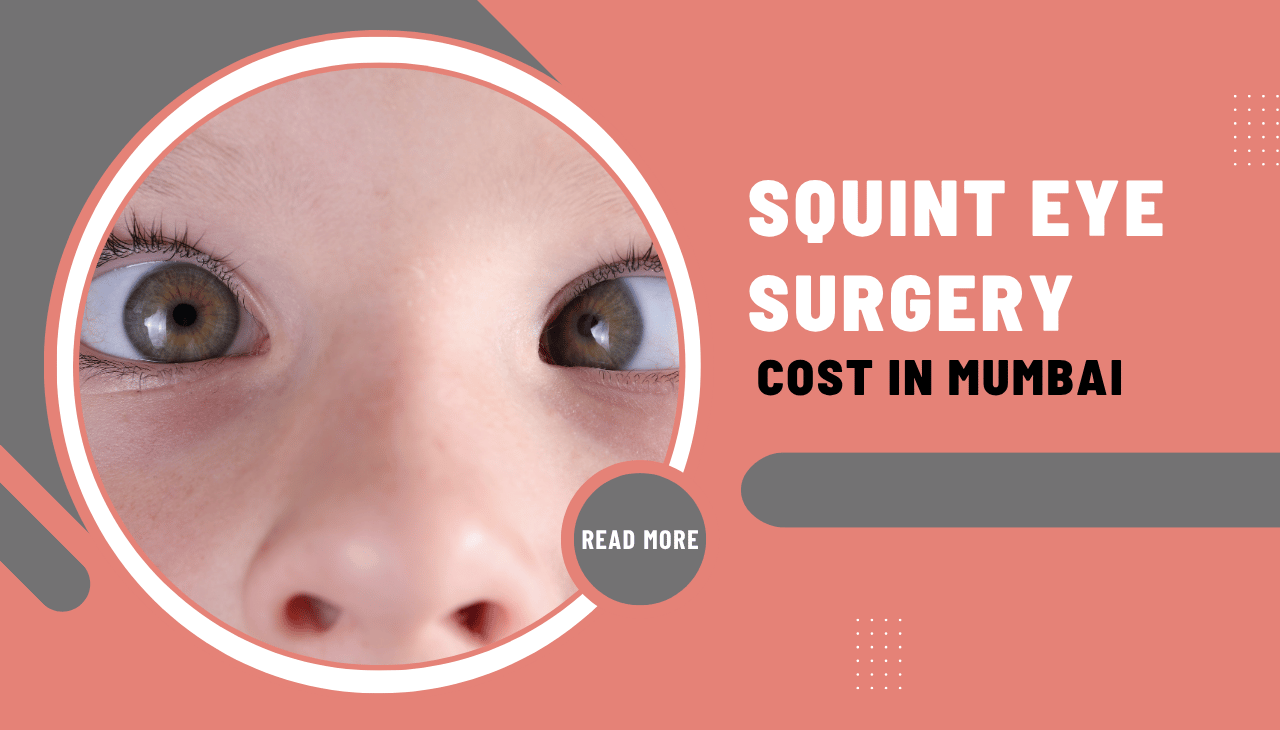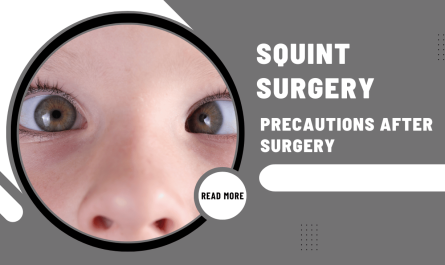Squint Eye Surgery Cost in Mumbai?
Squint, or strabismus, is a condition where the eyes do not align properly. It can affect vision, appearance, and confidence. Many people wonder about the cost of squint eye surgery, especially in a city like Mumbai, where treatment options are abundant. Understanding the factors that influence pricing, the procedure itself, and consultation details can help you make informed decisions. This blog covers the cost, factors affecting it, expert care, and answers common patient questions.
Understanding Squint Eye Surgery

Squint eye surgery corrects the alignment of the eyes by adjusting the eye muscles. The procedure is usually recommended when non-surgical treatments like glasses or exercises are insufficient. Surgery can improve vision, depth perception, and the appearance of the eyes.
Key aspects of the surgery include:
- Correcting inward or outward turning of the eyes.
- Performed under general or local anesthesia depending on age and case complexity.
- Recovery is usually quick, with follow-ups to monitor alignment.
Factors Affecting the Cost of Squint Surgery
The cost of squint eye surgery in Mumbai varies depending on several factors:
- Type of Surgery: Single-eye or both-eye surgeries have different costs.
- Complexity: Severe or complicated cases may require more advanced techniques, increasing the cost.
- Hospital Facilities: Leading hospitals with advanced equipment may charge higher fees.
- Surgeon’s Expertise: Experienced ophthalmologists with specialized training can influence the price.
- Location: Surgery in central Mumbai may cost more than in suburbs.
On average, squint eye surgery in Mumbai ranges from ₹40,000 to ₹1,50,000. It is important to consult with your ophthalmologist to get an accurate estimate for your specific condition.
Consultation and Expert Care at Laxmi Eye Hospital
Laxmi Eye Hospital is one of the largest eye hospital chains in Mumbai. With over 30 years of experience, it is known for transparent treatment and advanced eye care.
The hospital provides comprehensive services, including Specs Removal / LASIK (Bladeless LASIK, ICL, IPCL, Contoura Vision LASIK), Cataract Surgery, Glaucoma Treatment, Diabetic Eye Care, Cornea Clinic (Keratoconus management, corneal diseases, eye donation), Retina Treatment, and Pediatric Ophthalmology.
You can call or visit the hospital to book an appointment. During the consultation, the ophthalmologist assesses the severity of squint, discusses suitable treatment options, and provides a cost estimate.
Preparing for Surgery
Before squint surgery, your doctor may recommend:

- Comprehensive eye examination
- Pre-surgical tests to assess overall health
- Discussion of anesthesia options
- Instructions for fasting or medication adjustments
Proper preparation helps reduce risks and ensures smooth recovery.
Recovery and Post-Surgery Care
After surgery, most patients notice improved alignment within a few weeks. Follow-up visits are essential to monitor progress.
Post-surgery care includes:
- Using prescribed eye drops
- Avoiding strenuous activities for a few weeks
- Attending all scheduled follow-ups
- Monitoring for redness, swelling, or double vision
Most patients resume normal activities within a few days to weeks.
FAQs About Squint Eye Surgery
1. Is squint surgery painful?
The procedure is performed under anesthesia, so you will not feel pain during surgery. Mild discomfort may occur after surgery, which is manageable with medication.
2. How long does the surgery take?
Surgery usually takes 45 minutes to 2 hours depending on the complexity.
3. Can adults undergo squint surgery?
Yes, squint surgery is effective for both children and adults.
4. Is vision fully restored after surgery?
Surgery aligns the eyes. Additional vision therapy may be recommended to improve depth perception.
5. Are there any risks?
Minor risks include temporary redness, swelling, or double vision. Serious complications are rare.
Squint eye surgery can significantly improve vision and confidence. Understanding the cost, consulting experienced ophthalmologists, and following proper pre- and post-surgery care ensures better results. If you notice misalignment in your eyes or struggle with vision issues, seek professional advice. Early consultation can make treatment more effective and affordable.




